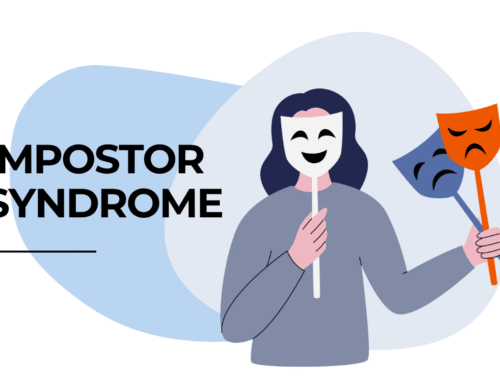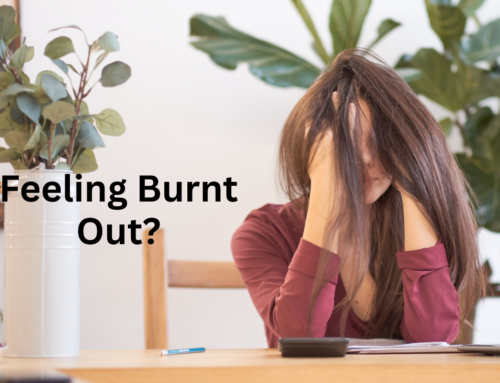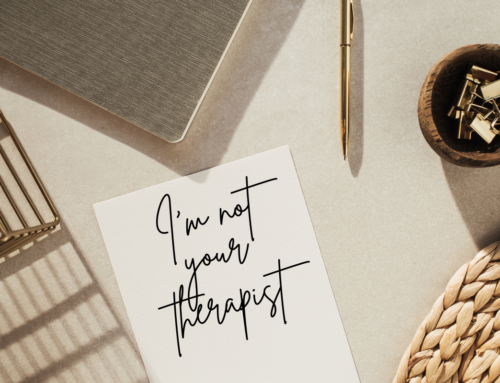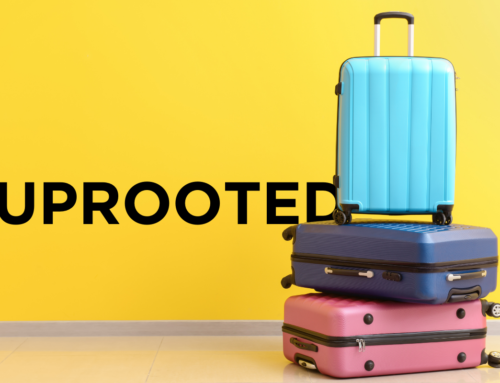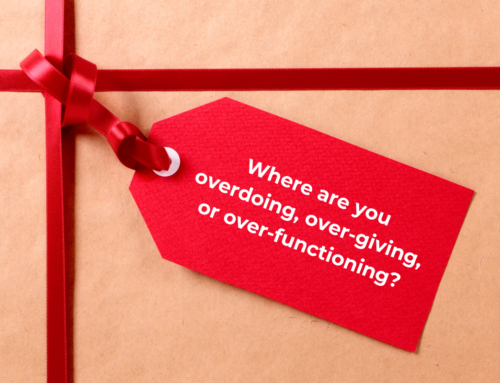It is the time of the year when we normally switch gears from the freedom and fun of summer and once again return to a more structured way of being. Kids are heading back to school (whether online, in person or in a hybrid model), we are preparing for fall activities and returning to our “normal” working lives.
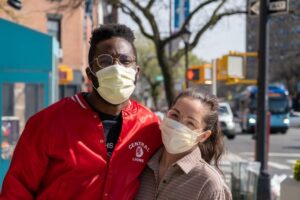
However, there is no “normal” right now.
A Google search defines normal as “the usual, average, or typical state or condition, conforming to a standard; usual, typical, or expected or (of a person) free from physical or mental disorders.”
There is absolutely no normal in our lives while in the midst of the COVID-19 global pandemic that even comes close to feeling usual, average or typical. Alternatively, for most of us, life feels atypical, uncertain and even scary these days.
As I write this, I am preparing to send my son back to college. He is packed and ready to go. Still, he firmly believes that he will not be at his university for long. Two colleges have either already sent kids home or gone strictly online with classes. As he’s dealing with this uncertainty, so are my husband and I. Will he be safe at school? How can we support him (and ourselves) should he be forced home? How can we best take care of ourselves and each other when we’re all under the same roof again during a time when my son would “normally” be actively enjoying his independence?
I have also been watching moms walking with kids in the morning, heading to the local preschool. My neighbor has one child going to school and one studying from home online for the first two weeks of the school year. What keeps running through my mind is how are working parents dealing with kids 24/7, doing online learning, all while trying to maintain their work?
A New Normal Or A New Paradigm?
In a great article in the World Economic Forum, There’s nothing new about the ‘new normal’. Here’s why, author Chime Asonye writes, “The language of a ‘new normal’ is being deployed almost as a way to quell any uncertainty ushered in by the coronavirus. With no cure in sight, everyone from politicians and the media to friends and family has perpetuated this rhetoric as they imagine settling into life under this ‘new normal’.”
Asonye then goes on to say, “As we weigh our personal and political responses to this pandemic, the language we employ matters. It helps to shape and reinforce our understanding of the world and the ways in which we choose to approach it. The analytic frame embodied by the persistent discussion of the ‘new normal’ helps bring order to our current turbulence, but it should not be the lens through which we examine today’s crisis. Far from describing the status quo, evoking the ‘new normal’ does not allow us to deal with the totality of our present reality. It first impedes personal psychological well being, then ignores the fact that ‘normal’ is not working for a majority of society.”
I love his insights, and highly suggest you read the article in its entirety, which details the effects of COVID-19 from a more global (he is writing from Nigeria) and lack-of equality perspective. As he says, “We should revel in the discomfort of the current moment to generate a ‘new paradigm’, not a ‘new normal’. Feeling unsettled, destabilized and alone can help us empathize with individuals who have faced systematic exclusions long-ignored by society even before the rise of COVID-19 — thus stimulating urgent action to improve their condition. For these communities, things have never been ‘normal’.”
That said, we have had change thrust upon us and, as human beings, we do not like it, regardless of who or where we are. But, by leaning into change, rather than resisting it, we can not only adapt to a new normal, but work toward creating a new paradigm that is better supportive of all humans and our planet.
Resisting Change
One of the root causes of our life’s challenges that I teach in my UPROOT curriculum comes from resisting change. We live in the illusion that there is a constant and that we need things to stay the same so we have a sense of security. Yet, in reality, change is the only constant. Everything changes. All of the time!
This morning I opened my email to find my morning message from the Notes from the Universe through Mike Dooley’s TUT.com, which I highly suggest signing up for. Part of the message reads,
“…it is time to start doing new things, saying new things, and visualizing so that you might catch these gargantuan waves of change and surf to dazzling new heights?
NOW’S THE TIME! TODAY’S THE DAY!! GO! GO! GO!
Hang ten,
The Universe”
Mike Dooley and his team are so talented and timely in the work they bring to the world. I smile each time I read these messages. Again, I highly recommend that you sign up and see what the Universe wants you to know each day.
Back to change and resisting it, STOP. Seriously. I know it’s challenging to let go, but it is an energy suck to live in the illusion that things are not going to change. Let’s—personally and collectively—learn to ride the waves and lean into the flow of a greater unknown.
I realize this is not easy because our brains are designed to keep us safe. The reptilian brain, the oldest part of our neurology, still functions in the times of “lions and tigers and bears, oh my,” especially when we are in heightened, stressful states. We feel that either it will eat me, or I will eat it. This is essentially the fight or flight response. The reality, however, is that we do not know what the future holds, yet we are designed and conditioned to make stuff up about the future. Making stuff up is our way of believing we are safe. Now, how silly is that when we take the time to really consider it? And, none of us, myself included, is skilled at not doing so. However, the awareness that we’re doing this can help us reduce stress, be in the moment and feel better about leaning into the unknown.
Living In The Moment
Although resistant to change, we are also designed and equipped to live moment-to-moment as we create our lives moment-by-moment.
My son and I recently had a conversation about a relationship that he has that feels challenged because he is about to leave for school, which is 1500 miles from Denver. As he was processing the experience and his feelings about it, I encouraged him to “be here now.” As I said to him and to you all now, “just be where you are and don’t project a negative possible outcome into the future.”
His response, which illustrates a significant point and issue that almost all of us deal with, especially recently, was, “I can’t get out of my head.” This is classic over-identification with our intellect. We are conditioned to believe everything that our thoughts tell us. I remember Elizabeth Gilbert, author of Eat, Pray, Love: One Woman’s Search For Everything Across Italy, India and Indonesia, amongst other fabulous books, speaking at an Oprah event saying, “my mind is a dangerous place. I try not to go there.”
The mind can be very helpful and needed, but it is not always our best ally when it comes to our feelings of uncertainty and fear.
Going back to Chime Asonye’s article, he writes,
“Allowing ourselves to cope means not normalizing our situation and quickly moving forward, but giving ourselves the time to truly process it. Psychologists advise that it’s important to identify the losses we are feeling and to honour the grief surrounding us through methods like meditation, communicating our struggle, and expressing ourselves through art or by keeping a journal. In uncertain times, the ‘new normal’ frame reinforces an understanding that the world and our emotions should by now have settled. Surrounded by uncertainty, it’s okay to admit that things are not normal. It’s okay to allow ourselves to grieve or to be scared. It’s okay not to be comfortable with what is going on. In fact, all of us should feel uncomfortable with our present condition because the ‘new normal’ describes a reality to which many do not have access.”
What Do We Do In These Uncertain Times?
Here are some of my thoughts:
What we resist, persists. Try to go with the flow
Be with what is. You are not going to change what is happening, but you can change how you choose to deal with it.
Practice self-compassion. Everyone is suffering right now. Using loving kindness with ourselves and others is essential in these times. Kristen Neff, Ph.D, who is widely recognized as one of the leading experts on self-compassion, offers valuable insights and practices on self-compassion, as well as a test to help you access your level of self-compassion on her self-compassion.org website.
Self-care is not selfish. It is needed. Ask yourself how you do and can take care of yourself. I am finding being outside in nature very helpful right now.
Find joy in a creative outlet. What can you do to express yourself creatively? Writing, painting, scrapbooking? Find something that you can get lost in for a while and let your creativity out.
Ask for help. We all need help at different times in our lives for different reasons. I recently saw that 40 percent of our population is dealing with some level of depression. There is no shame in feeling bad at times like these. These are challenging times. Please reach out to friends, families, neighbors and your community. Just because we are encouraged to social distance does not mean that we cannot connect. We all need connection. We are designed to need each other.
Please know that I am always here to support you. I have a special COVID-19 offer on my website and hope that you will take advantage of my service at a much reduced rate if needed.
All the best to you,
Christy
